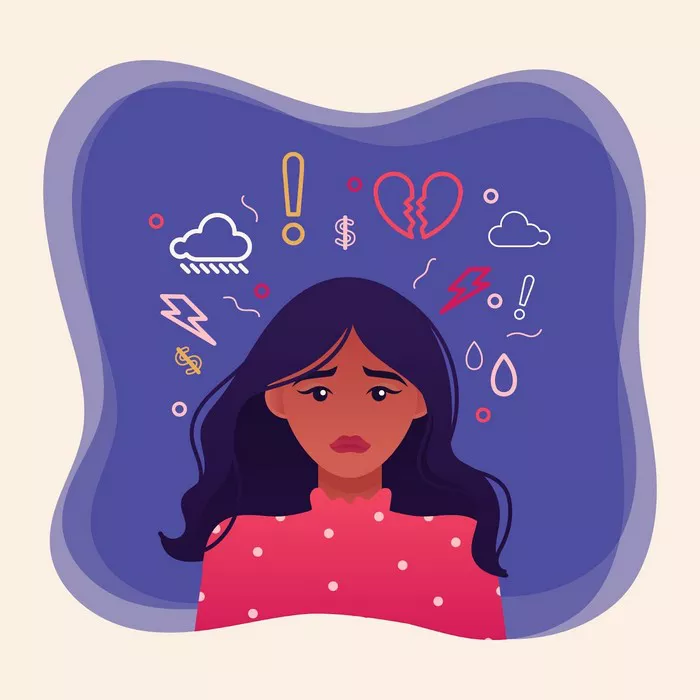Loneliness, often dismissed as a fleeting emotion, can evolve into a more profound and enduring condition known as Loneliness Disorder. This disorder transcends the ordinary pangs of solitude, becoming a pervasive and chronic sense of isolation that profoundly affects an individual’s mental and physical well-being. In this comprehensive exploration, we delve into the nuances of Loneliness Disorder, examining its definition, underlying causes, diagnostic criteria, and the far-reaching consequences it can have on one’s life.
Defining Loneliness Disorder
Loneliness Disorder is not a mere transitory emotion but a complex and chronic mental health condition. It extends beyond the conventional understanding of loneliness, encompassing persistent feelings of social isolation and a profound sense of disconnection. Unlike occasional bouts of loneliness, Loneliness Disorder manifests as a long-term, deeply rooted issue that significantly impacts various aspects of an individual’s life.
The Diagnostic and Statistical Manual of Mental Disorders (DSM-5) does not currently recognize Loneliness Disorder as a distinct psychiatric diagnosis. However, mental health professionals acknowledge its prevalence and the profound effects it has on those who experience it. To better understand this disorder, it is essential to explore its roots, symptoms, and potential consequences.
Roots Cause of Loneliness Disorde
Understanding the roots of Loneliness Disorder involves delving into its multifaceted origins. While external factors such as social isolation, lack of companionship, or geographic remoteness can contribute, internal factors play a crucial role. Low self-esteem, social anxiety, and a distorted perception of social interactions can amplify feelings of loneliness, creating a vicious cycle that reinforces the disorder.
Childhood experiences also shape an individual’s susceptibility to Loneliness Disorder. Those who grew up with insecure attachments, experienced neglect, or faced social rejection are more prone to developing a chronic sense of loneliness in adulthood. Genetic predispositions and neurobiological factors may further contribute to an individual’s vulnerability to this disorder.
Recognizing Loneliness Disorder
While Loneliness Disorder lacks a formal diagnostic classification in the DSM-5, mental health professionals rely on specific criteria to identify and assess its severity. Persistent feelings of isolation, a diminished ability to form and maintain meaningful relationships, and impaired social functioning are key indicators. Additionally, individuals with Loneliness Disorder may exhibit physical symptoms such as disrupted sleep patterns, changes in appetite, and increased susceptibility to stress-related illnesses.
Diagnostic assessments often involve detailed interviews, self-report measures, and observation of social behaviors. The goal is to differentiate between ordinary loneliness and Loneliness Disorder, ensuring that individuals receive appropriate support and interventions tailored to the severity of their condition.
Consequences of Loneliness Disorder
The repercussions of Loneliness Disorder extend far beyond emotional distress, affecting both mental and physical health. Chronic loneliness is associated with an increased risk of developing mental health conditions such as depression, anxiety disorders, and even cognitive decline in older adults. The persistent stress of social isolation can contribute to heightened levels of cortisol, the body’s stress hormone, leading to long-term physiological consequences.
Moreover, loneliness has been linked to cardiovascular problems, weakened immune function, and a higher mortality rate. The detrimental effects of Loneliness Disorder on physical health underscore the urgent need to address this condition as a public health concern.
Interventions for Loneliness Disorder
Addressing Loneliness Disorder requires a multifaceted approach encompassing psychological, social, and community-based interventions. Therapeutic interventions, such as cognitive-behavioral therapy (CBT) and interpersonal psychotherapy, aim to reshape negative thought patterns and improve social skills. Group therapy and support groups provide individuals with a platform to share experiences, fostering a sense of belonging and understanding.
Community-based initiatives that promote social inclusion and combat social isolation are integral to mitigating Loneliness Disorder. From local community centers to online platforms, creating spaces for individuals to connect, share, and engage in meaningful activities can be instrumental in breaking the cycle of loneliness.
Loneliness in Specific Demographics
Loneliness does not discriminate based on age, gender, or socioeconomic status; however, its manifestation can vary across different demographic groups. Tailoring interventions to address the unique challenges faced by specific populations is crucial for effective support.
For example, the elderly often experience loneliness due to factors such as loss of spouse, physical health decline, or limited social mobility. Interventions for this demographic may include community programs, volunteer initiatives, and technologies designed to facilitate connection. Similarly, adolescents grappling with loneliness may benefit from school-based programs, peer support networks, and mental health education.
The Role of Policy and Advocacy
Addressing Loneliness Disorder requires a collective effort involving policymakers, mental health advocates, and community leaders. Developing policies that prioritize social connectedness, mental health education, and accessible mental health services is paramount. Public awareness campaigns can help destigmatize loneliness, encouraging individuals to seek support without fear of judgment.
Furthermore, creating environments that promote inclusivity and community engagement is essential. This includes urban planning that prioritizes communal spaces, workplace initiatives that foster a sense of belonging, and educational programs that teach interpersonal skills from an early age.
Future Directions in Loneliness Research
As research on Loneliness Disorder continues to evolve, new insights emerge, shaping our understanding of this complex phenomenon. Investigating the neurobiological underpinnings, exploring the impact of cultural factors, and assessing the efficacy of emerging interventions are key areas for future research.
Advancements in neuroscience, including neuroimaging studies, may provide valuable insights into the brain mechanisms underlying loneliness. Cross-cultural studies can illuminate how societal norms and cultural expectations influence the experience of loneliness. Additionally, evaluating the long-term outcomes of innovative interventions will contribute to the development of evidence-based approaches for addressing Loneliness Disorder.
Conclusion
Loneliness Disorder is a pervasive and intricate mental health condition that demands attention and action. As we navigate the complexities of its origins, manifestations, and consequences, it becomes evident that addressing loneliness requires a comprehensive and collaborative approach. From individual therapeutic interventions to societal changes driven by policy and advocacy, each step plays a crucial role in fostering a connected and supportive society.
Recognizing Loneliness Disorder as a legitimate concern is the first step toward creating a world where individuals can thrive emotionally, mentally, and physically. By understanding the roots of loneliness, tailoring interventions to specific demographics, embracing technological advancements judiciously, and advocating for policies that prioritize social connectedness, we can collectively work towards mitigating the impact of Loneliness Disorder on individuals and society as a whole. It is a call to action for a future where no one feels alone in a world that is inherently interconnected.
[inline_related_posts title=”You Might Be Interested In” title_align=”left” style=”list” number=”6″ align=”none” ids=”4698,5263,5261″ by=”categories” orderby=”rand” order=”DESC” hide_thumb=”no” thumb_right=”no” views=”no” date=”yes” grid_columns=”2″ post_type=”” tax=””]


































